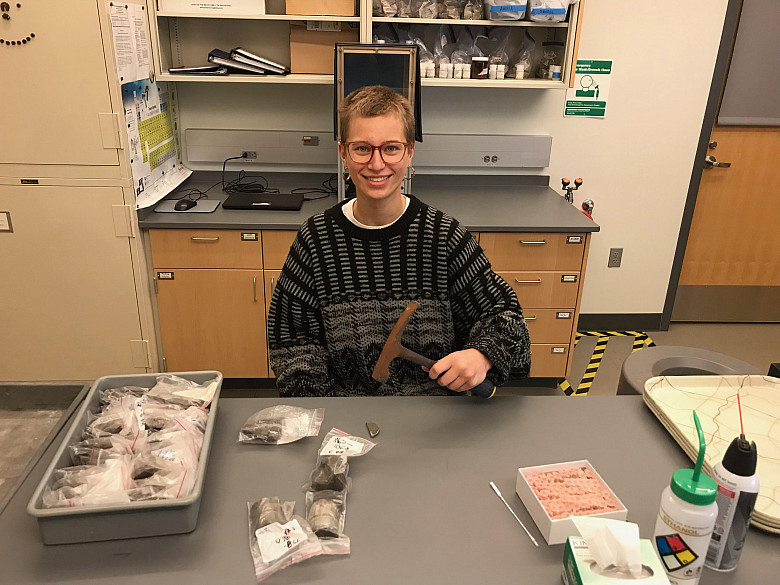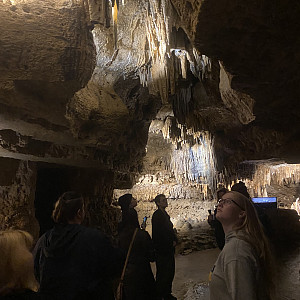Olivia Farbarik ’23 Interprets Devonian Carbon Cycle Dynamics
Olivia Farbarik ’23 is a Geology major working with thesis advisor Jay Zambito. She is using a drill core from the Illinois Basin in Bullitt County, Kentucky to interpret Devonian carbon cycle dynamics.
Throughout the Devonian Period (419.0 to 359.3 million years ago), climate underwent a dramatic transformation. One determining factor was the evolution of trees. The presence of forests in the Middle-Late Devonian meant that soil was being eroded by roots at a substantial rate for the first time, and combined with a dramatic increase in plant biomass, the influx of nutrients into the epicontinental seas over what is now North America caused a cascade of effects including eutrophication. Ultimately, the deposition of black shale from eutrophication caused massive carbon drawdown and long-term global cooling culminating in the Late Devonian glaciation. With a core from the Illinois Basin, I am reconstructing the carbon cycle to understand the dynamics of local climate change building up to this glaciation.
For this study I am using a total of 60 samples from the A-12 drill core from Bullitt County, KY. A combination of x-ray fluorescence, loss-on-ignition, and organic carbon isotope analyses has provided data about the carbon cycle and the rate of sedimentation recorded in the core. I am currently comparing this dataset in the context of marine versus terrestrial organic matter input locally and previous reconstructions of the global carbon cycle to better understand Devonian climate dynamics.



